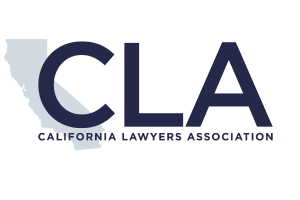Getting Results
Tax Audits
Handling Tax Audits : Tax Lawyers Guide
Facing a tax audit from the Internal Revenue Service (IRS), California Franchise Tax Board (FTB), California Department of Tax and Fee Administration (CDTFA), Employment Development Department (EDD), or other state tax authorities can feel overwhelming. The process is often time-consuming, stressful, and may even carry the risk of criminal tax investigation. With a proven track record of securing “no change” tax audit results, minimal payment agreements, and tax refunds for our clients, we are committed to helping you navigate this complex tax audit process with confidence. Our tax law firm can support you with the essentials of handling any tax audits with key strategies for success helping you every step of the way.
Understanding Tax Audits: What to Expect
A tax audit is a formal review by a taxing authority to verify the accuracy of your tax returns, income, expenses, and compliance with tax laws. Tax Audits may be triggered by discrepancies in your filings, random selection, or specific red flags, such as unreported income or unusually high deductions. In California, tax audits can involve multiple agencies, including:
- IRS Tax Audit: Focuses on federal income tax compliance, scrutinizing income, deductions, and credits.
- FTB Tax Audit: Examines state income tax returns, often aligning with IRS audits but with California-specific rules.
- CDTFA Sales Tax Audit: Oversees sales, use, and excise taxes, particularly for businesses in retail, cannabis, or other regulated industries.
- EDD Payroll Audit: EDD Audits payroll taxes and employee classification (e.g., employee vs. independent contractor).
- Other State Agencies: May audit specific taxes, such as property or specialty excise taxes.
The tax audit process can be daunting, with extensive document requests, interviews, and the potential for significant financial penalties or, in rare cases, referral to criminal tax investigations. You may feel a loss of control, but it’s critical to remember that you have rights as a taxpayer, and with proper preparation, an audit can be an opportunity to resolve disputes and, in some cases, secure a tax refund.
Your Taxpayer Rights
Every taxpayer is entitled to protections under the IRS Taxpayer Bill of Rights and similar state-level safeguards. These rights include:
- The Right to Be Informed: Receive clear explanations of the audit process and findings.
- The Right to Quality Service: Expect professional and courteous treatment from IRS tax auditors.
- The Right to Pay No More Than the Correct Amount: Ensure tax assessments reflect your accurate tax liability.
- The Right to Challenge and Tax Appeal: Dispute audit findings through appeals or other legal avenues.
- The Right to Privacy and Confidentiality: Have your personal and financial information protected.
While you should assert these rights firmly, always maintain a professional and courteous demeanor when interacting with tax auditors. Confrontational behavior can escalate tensions and complicate negotiations. At Tax Lawyers Group APC, we act as your advocate, ensuring your rights are upheld while fostering productive communication with tax authorities.
The Key to Audit Success: Organization
The cornerstone of a successful tax audit defense is knowing when and how to present your case. Tax authorities will request detailed records to substantiate your income, expenses, deductions, and credits. Being proactive and thorough in your preparation can make the difference between a favorable outcome and costly adjustments. Follow these steps to prepare:
Collect and Organize Financial Records
Gather all relevant documents, including:
- Income Records: W-2s, 1099s, bank statements, and sales records.
- Expense Records: Receipts, invoices, contracts, and canceled checks.
- Tax Returns: Federal and state returns for the audited years, along with supporting schedules.
- Business Records: Ledgers, payroll records, and inventory logs (especially for businesses subject to CDTFA or EDD audits).
Categorize these records clearly to align with your tax filings. For example, group expenses by category (e.g., cost of goods sold, operating expenses) and ensure income sources are traceable. If records are missing or incomplete, work with your attorney to reconstruct your financial history using bank statements, third-party vendor records, or other evidence.
Address Missing Documentation
If you lack certain records, don’t panic. Do your best to piece together your position using alternative documentation, such as:
- Bank or credit card statements showing payments to vendors.
- Affidavits from business partners or employees verifying transactions.
- Industry benchmarks to estimate reasonable expenses.
Our team at Tax Lawyers Group APC can assist in reconstructing records and presenting a compelling case to tax auditors, even when documentation is incomplete.
Conduct an Internal Review
Before engaging with tax auditors, review your records internally to identify potential vulnerabilities, such as unreported income or overstated deductions. This allows you to address issues proactively and develop a strategic defense. Our Los Angeles tax audit attorneys perform thorough pre-audit assessments to ensure your case is airtight.
Common Audit Focus Areas
Tax audits typically center on specific areas where discrepancies are most likely to occur. Understanding these focus areas can help you prepare effectively:
- Income Verification: Tax Auditors compare reported income to third-party data (e.g., 1099s, bank deposits) to identify underreporting. Cash-heavy businesses, such as those in retail or cannabis, face particular scrutiny.
- Deductions and Credits: Excessive or improperly categorized deductions, such as personal expenses claimed as business costs, are common audit targets.
- Cost of Goods Sold (COGS): For businesses, especially in industries like cannabis subject to IRS Section 280E, auditors closely examine COGS calculations to ensure compliance.
- Payroll and Employee Classification: EDD audits focus on whether workers are correctly classified as employees or independent contractors, impacting payroll tax obligations.
- Sales and Excise Taxes: CDTFA audits verify proper collection and remittance of sales, use, or cannabis excise taxes, along with valid licensing.
By anticipating these focus areas and organizing your records accordingly, you can present a strong case and minimize adjustments.
Why Choose Tax Lawyers Group APC?
At Tax Lawyers Group APC, our Los Angeles tax audit attorneys bring decades of experience and a client-centered approach to defending taxpayers against audits. Our track record speaks for itself: we have secured “no change” audit outcomes (meaning no additional taxes owed), minimal payment agreements, and even tax refunds for many of our clients. Here’s how we can help:
- Comprehensive Case Review: We conduct an in-depth analysis of your financial records and tax filings to identify strengths and address weaknesses.
- Strategic Representation: Our attorneys negotiate directly with the IRS, FTB, CDTFA, EDD, or other agencies, advocating for your interests and minimizing liabilities.
- Proactive Preparation: We help you organize records, reconstruct missing documentation, and develop a compelling defense strategy.
- Risk Mitigation: We assess the potential for criminal referrals and take proactive steps to protect you from escalated investigations.
- Holistic Solutions: Beyond tax audit defense, we explore options like tax bankruptcy, installment agreements, offers in compromise, or penalty abatement to resolve your tax issues.
Our commitment to personalized service and meticulous preparation sets us apart. We understand the stress of facing a tax audit, and we’re here to restore your peace of mind.
Turning Challenges into Opportunities
While tax audits are inherently risky, they also present an opportunity to resolve disputes, clarify your tax obligations, and, in some cases, secure a tax refund. With proper preparation and expert representation, you can emerge from the tax audit process better informed to avoid future audits and with better understanding of your tax compliance.
Consult with a Tax Attorney:
If you’re facing an audit from the IRS, FTB, CDTFA, EDD, or another tax authority, contact Tax Lawyers Group APC, to schedule a confidential consultation. Our Los Angeles tax audit attorneys will review your case, prepare you for the audit, and fight for the best possible outcome.






















